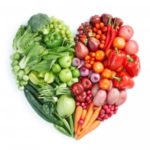Healthy Eating Guide:
1/ Sugar, processed foods, cookies, candy, soda – remove wherever possible.
2/ Never get too hungry.
*Eat breakfast within an hour of waking up and if you’re a coffee drinker, have your morning cup with or after your meal, but not before or instead of it.
*Eat a modest sized meal every 3-4 hours.
*Eat a good quality protein and fat at every meal.
*Have an afternoon snack of some nuts, a protein shake or smoothie, a green drink, a hard-boiled egg, some hummus with vegetables.
3/ Good carbs are allowed. Whole grains and starchy vegetables (sweet potatoes, winter squash, even modest amounts of white potatoes baked or roasted as long as they are not covered in sour cream!)
*Generally, try to skip carbs at breakfast; or keep it to ½ a portion (1 piece of whole grain toast) and don’t ever start your day with sweetened carbs (cereals, granola, muffins, pancakes with maple syrup, even if they’re paleo pancakes).
A Good breakfast includes a high quality protein. Good choices: eggs, a protein shake, or oatmeal.
If you opt for oatmeal or another grain, add some nuts and good quality fat such as coconut oil or almond butter for more sustainable energy.
*At lunch have 1 portion of a whole grain or a starchy energy vegetable and at dinner have 1-2 portions. Examples include half a cup of cooked quinoa, red or pink or black rice, brown rice, and millet, a sweet potato, a portion of winter squash or baked or roasted white potatoes.
*Eating a healthy carbohydrate about 5 hours before bed has been shown to normalize cortisol, improve sleep, and help reduce excess weight. But don’t eat anything within 3 hours of bed, because that can do the opposite.
Oats types and recipes
dish.allrecipes.com/whats-the-difference-between-types-of-oats/
J.Oliver recipes for oat porridge
4/ Get enough sleep 7-8 hours.
*Get to bed at the same time each night and wake up at the same time each day.
*Turn off all electronics ideally an hour before you try to go to sleep, because the blue light disrupts melatonin production, the counterbalance to cortisol which also helps us detox our brains and hormones while we sleep.
*Skip the alcohol in the evening – even a glass of good red wine has been shown to cause sleep disruptions, especially in women.
5/ Indulge now and then. Consider 2-3 squares of chocolate in the afternoon fair game!
6/ Worry less about being fat. And love your body more.
7/ Eat “Hari-hachi-bu” way, it is the Japanese concept of eating until one is only 80% full – eating enough to feel comfortably satisfied but stopping before you feel “full” – and way before you feel “stuffed.”
8/ Exercise 15-20 min a day (any form of movement, walking, dancing, yoga).
9/ Healing inflamation – Antioxidant rich foods include berries (fresh or frozen) and leafy green vegetables; supplements include resveratrol, NAC, and quercetin, as well as vitamin C.
10/ Nourishing adrenals (Sleep, relaxation, exercise, take adaptogens).
11/ Graze to prevent spikes in blood sugar (Grazing on healthy foods will keep blood sugar steady).
Eat slowly, when seated and relaxed.
Studies show that digestion cannot occur unless the body is relaxed. This means no eating on the run.
Its simple logic from our past history really, when active, under stress or in “Flight mode” the body does not want energy used for digesting food, it needs to be available for instant release to muscles should you need to take flight / run. So eating on the run never allows the digestion process to happen properly so the food effectively passes straight through without the nutrients being extracted.
Eating slowly allows the “Full” reflex time to react. Eating too fast for many people means that they are well past full by the time the Full reflex has kicked in.
